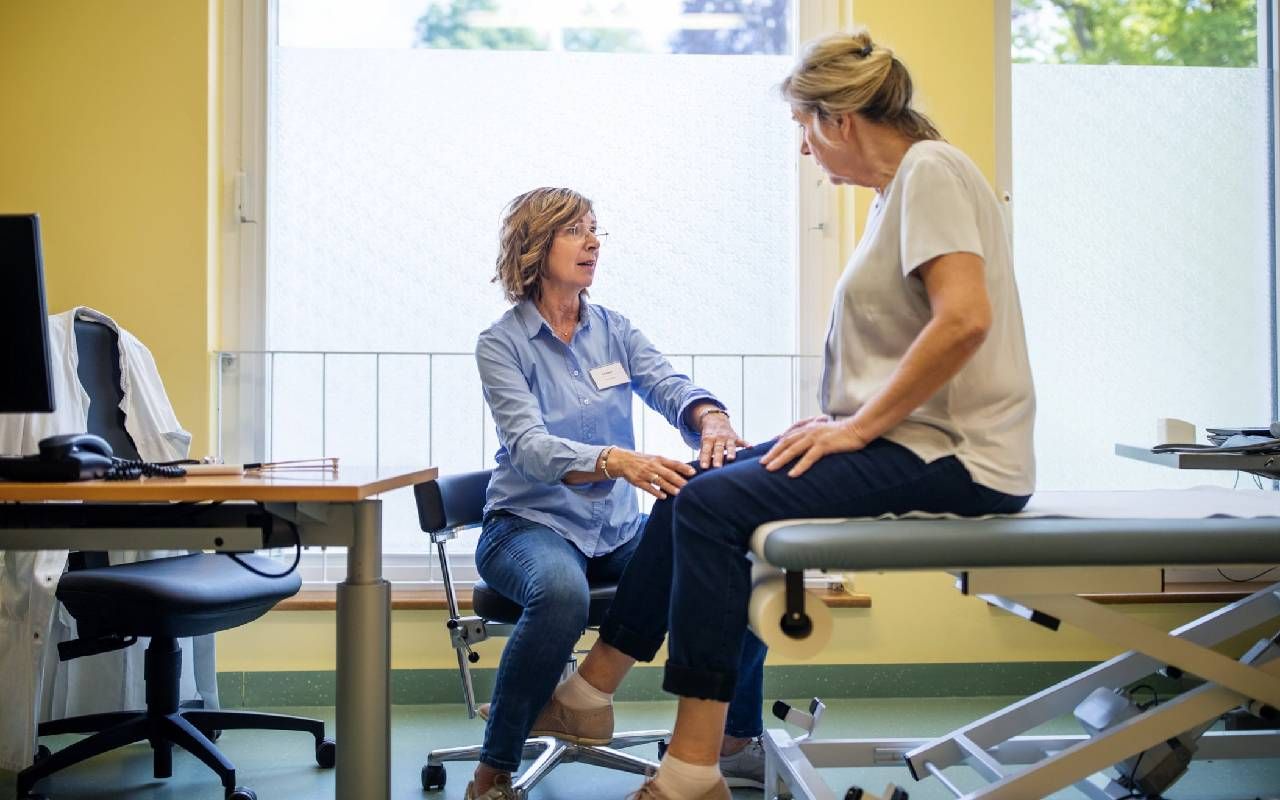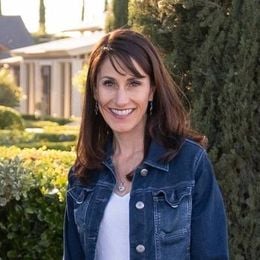Learning To Trust Your Intuition About Your Body
Experts say our bodies and minds are designed to recognize what's happening inside of us and, if we're paying attention, may guide us toward wholeness
I was only 23 years old, but I hadn't menstruated in more than two years. Thick, dark hairs were cropping up all over my body. I knew something was off. From the first missed period, doctors discounted my concerns. "The hairs are genetic." "You're stressed." "You don't have enough body fat." "Maybe you're exercising too much." Then, they discovered a honeydew-sized mass on my right adrenal gland.

Since ancient times, people have relied on intuition to identify health problems and heal diseases.
It turns out my experience isn't unique. Each year, nearly 800,000 people die or become disabled after being misdiagnosed. And research suggests doctors diagnose women's health problems significantly later than men's — even, or maybe especially when the women's gut instincts sound alarm bells early in the disease process.
But what if an important piece of the puzzle resides inside your psyche? What if using your intuition can inform not only how you heal but whether, when, and how you get an accurate diagnosis? According to Dawn Gross, M.D., a palliative care specialist at the University of California in San Francisco, our bodies and minds are designed to recognize what's happening inside of us and, if we're paying attention, guide us toward wholeness.
The Science of Intuition
Since ancient times, people have relied on intuition to identify health problems and heal diseases. Some call intuition a sixth sense. Others call it a gut instinct. Still others view internal wisdom as divine guidance. But no matter which terms you use, that inner knowing can inform how you heal —and doctors are increasingly taking note.
Studies in 2022 (published in BMC Primary Care) and 2023 (published in British Journal of General Practice) reported that primary care physicians found patients' instincts useful in gaining a deeper understanding of health problems ranging from cancer to anxiety.
A 2017 study published in the British Journal of General Practice reported that patients' gut feelings about having cancer can be reason enough to pursue additional diagnostics. And other studies suggest that when people sense something is off, or feel different, that may be a signal to probe further — even when test results are "normal."
"Every patient has an internal knowing about what they need, what matters most to them, even if that knowing is muted by external noise from their physicians, family members and friends," says Gross. "But giving voice to your intuitive feelings provides important insights about your health —sometimes even more than test results, scans or a physical exam."
When You Know, You Know
Medical training focuses on lab results, algorithms and standardized protocols to guide patient care. Using that constellation of data, doctors suspected my tumor was invading my liver, kidneys and lungs. They told my family that surgery would be complicated and last several hours. They also said there was a 50% chance the mass was cancerous.
"Every patient has an internal knowing about what they need, what matters most to them, even if that knowing is muted by external noise from their physicians, family members and friends."
But somehow, I knew the tumor was benign and encapsulated. In my mind, I could see the surgeon making the incision in my abdomen and removing the tumor without incident. Had the surgeon shared my vision, he could have planned a lunch date. From start to finish, the operation took less than two hours — and the tumor was benign, just as I intuited. It wasn't wishful thinking. It was a certain knowing that defied explanation.
Dustin Ballard, M.D. tells me on-point patient projections like mine happen in medicine all the time. An emergency medicine physician at Kaiser Permanente in Northern California, Ballard recalls one patient who came in with a small brain bleed.
"He looked at me and said, 'I'm going to die,'" Ballard says. "He was certain of it, even though there was no reason to believe at the time that he wouldn't make a full recovery. Sure enough, an inflammatory process took hold in his brain, and he died within 24 hours."
Tapping Into Your Internal Wisdom
When it comes to health care, physicians are programmed to focus first on data. What is the white blood cell count, hemoglobin, blood pressure, heart rate?
"We're chasing numbers instead of uncovering what the body really needs to heal," Gross says. So, especially in cases where traditional algorithms aren't sufficient to identify what ails you, it's important to bring your insight to the table.
These insights can come through images, daydreams, thoughts, feelings, dreams — the language the unconscious mind uses to communicate what's happening in the body. They can also happen during a guided meditation or in response to a carefully posed question or journal prompt. Something like, Dear INSERT BODY PART, what do you need to heal?
Listening to your body without judgement (which meditation, guided imagery and hypnosis can facilitate) is different than anxiety-induced doom scrolling.
"By using our intuition, we can uncover when and where an imbalance began, why it may have occurred and how it might shift," says Wendie Colter, founder of The Practical Path, an intuitive development program for health professionals and author of "Essentials of Medical Intuition: A Visionary Path to Wellness."
"We are all born with the ability to tap into our intuition, but like exercising a muscle, cultivating our intuition takes time and practice," she says.
And I've been practicing.
Partnering With the 'Right' Providers
Years after doctors removed my tumor, I visited a highly skilled medical intuitive for a guided imagery session and discovered my body had a lot to say about my tumor's origin story. Molested by a neighbor as a young girl, my now-adult body began pumping out male hormones like DHEA and testosterone to help me feel safe and strong. Once I understood why my body was making those hormones, with the therapist's help, I learned to cultivate safety in healthier ways.
But such insights only arrive when you're not attached to the outcome, says Colter. "You have to be energetically neutral enough to receive clear information."
Unfortunately, the body is rarely neutral. It has a fear of death, pain and suffering, and it's constantly reacting and responding to our mind's ramblings and emotions. There's also genuine concern that your feelings are being influenced by "Dr. Google."
"There's a very fine line between intuition and internet searching," Ballard says. Listening to your body without judgement (which meditation, guided imagery and hypnosis can facilitate) is different from anxiety-induced doom scrolling. That's why it's important to partner with a doctor who values your story and can guide you toward the diagnostic tests and treatment decisions that sit well not only in your gut but in theirs, too.
"The doctor-patient match is critical — and it's important not to settle," Gross says.
Since the adrenal tumor debacle, fears about its return ebb and flow, even today. They are fears though, not intuition. Over time, I have learned to seek out physicians who, instead of feeding my fears or ignoring them, devise a plan that not only addresses any disease that comes my way, but also support me as a human being.


